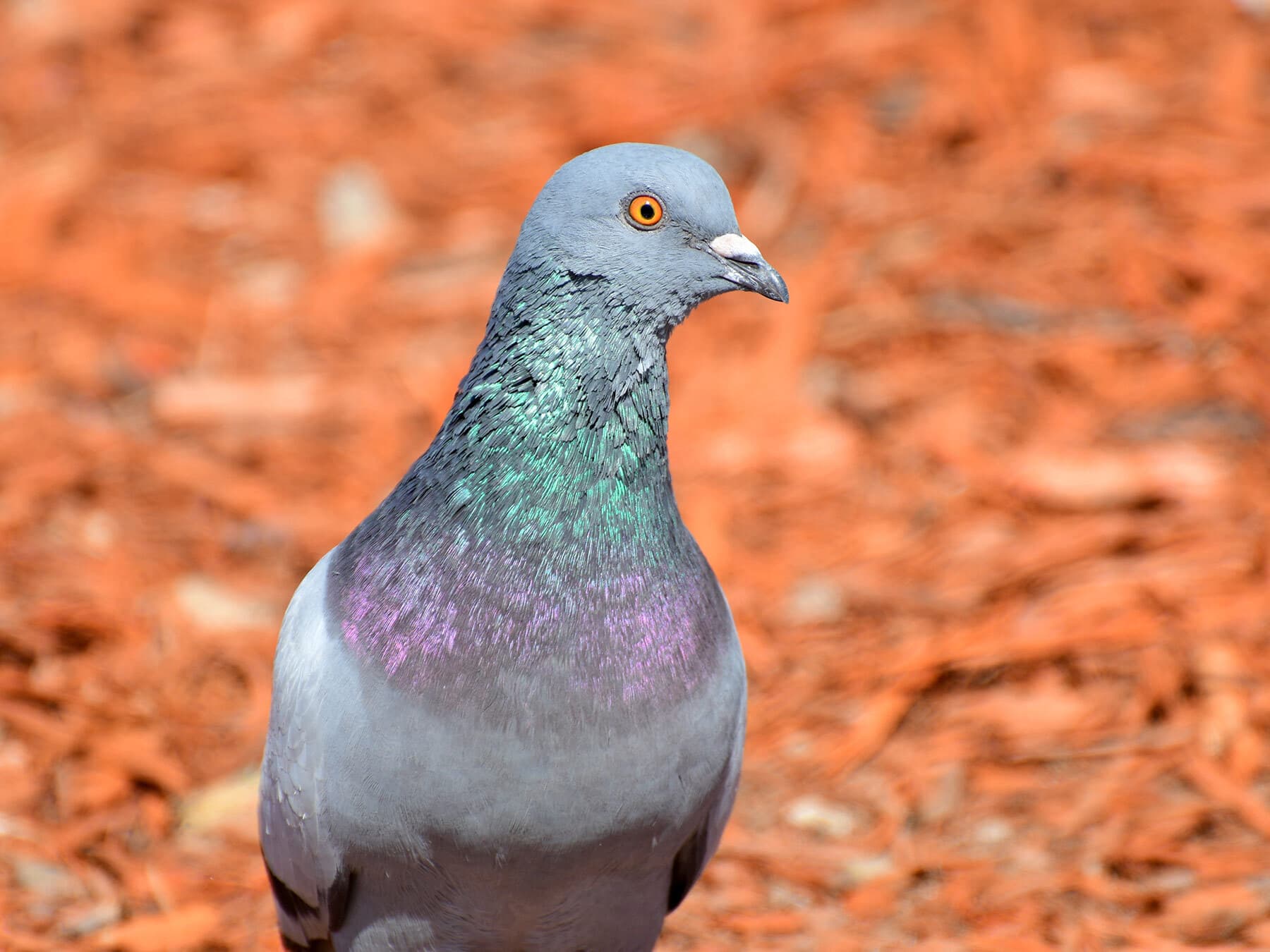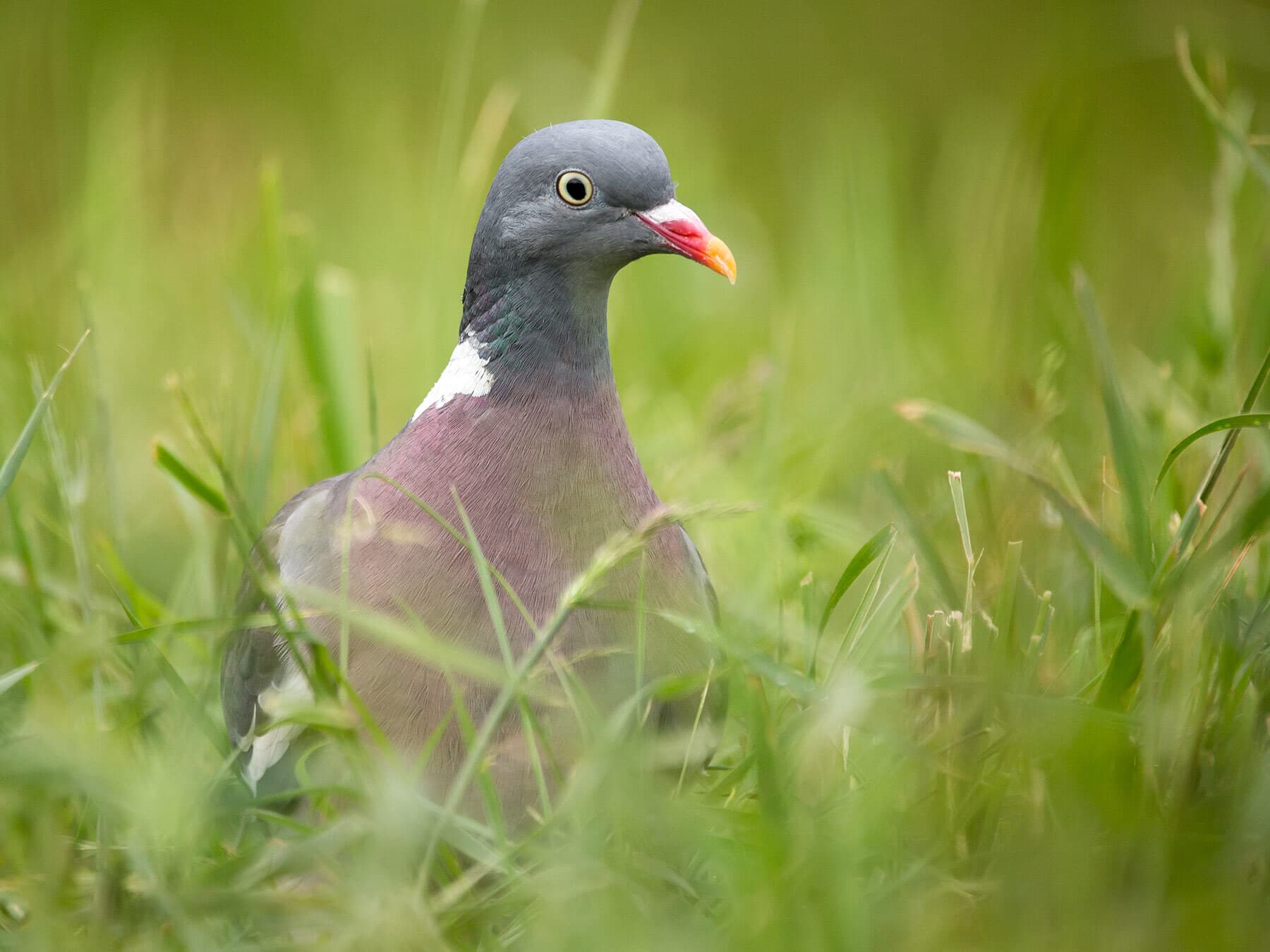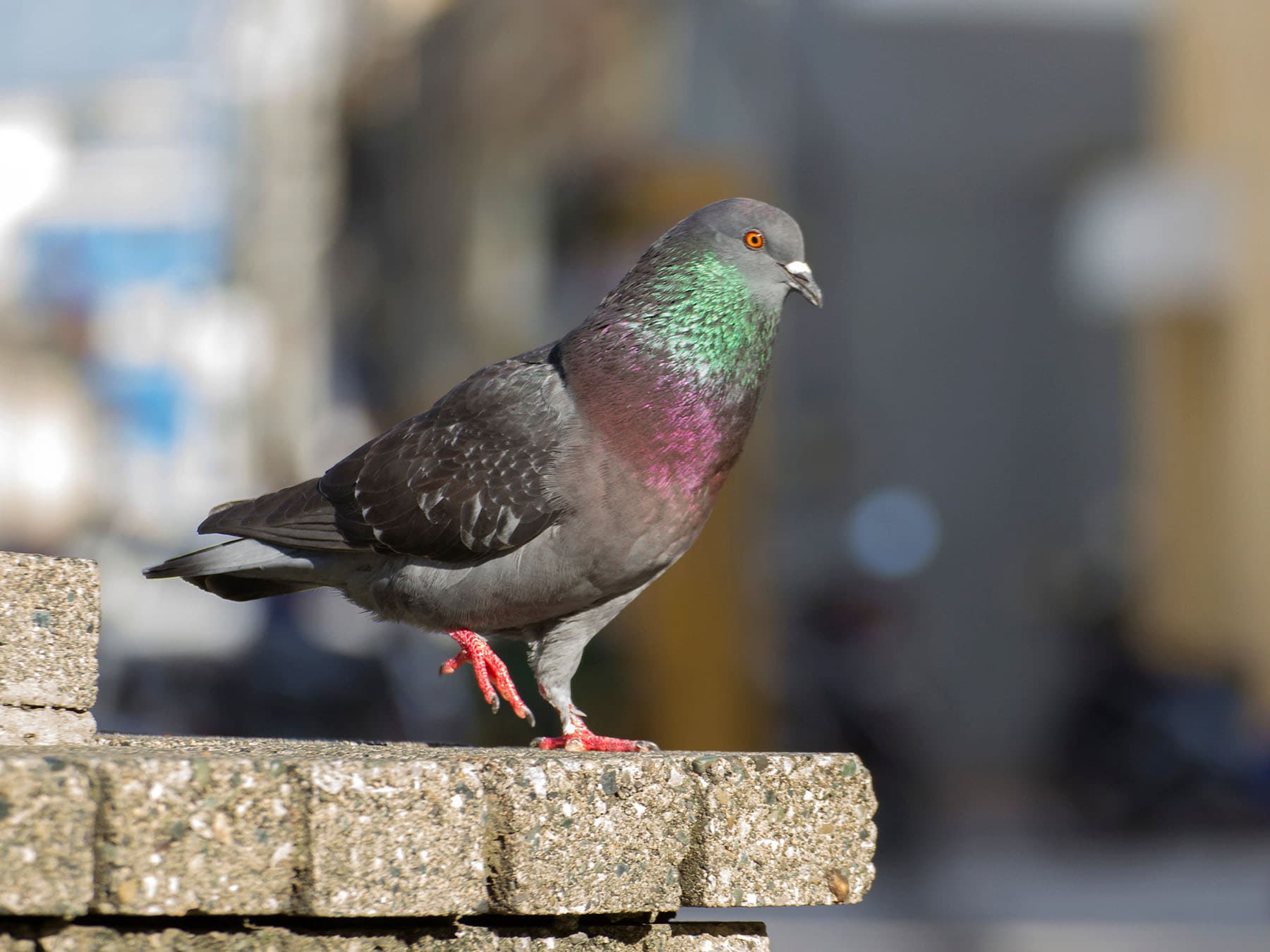
From the Journal
How to Humanely Deter Pigeons: Responsible and Effective Strategies
- Urban Appeal: Feral Pigeons thrive in cities due to architectures mirroring their natural habitats.
- Effective Deterrents: Use reflective objects, bird netting, protective spikes, and strategic feeding to keep pigeons at bay.
- Community Collaboration: Collective efforts, considering building designs and feeding habits, yield the best results.
- Legal & Humane Approach: Before implementing solutions, check local laws and consider humane methods, possibly seeking professional advice.
The Feral Pigeon (Columba livia domestica) is an everyday fixture in the urban world, and let’s be honest, these adaptable avians can be messy. In this article, we’ll explore the most effective and humane ways to deter Pigeons.
Read along if you have a Pigeon problem, the solution might be simpler than you think!
Why are Pigeons Attracted to Urban Areas?
Before we look at some excellent Pigeon deterrents, it might be helpful to discuss the background of this widespread problem. Know your enemy, as they say. So, why are Pigeons so at home in our towns and cities?
Feral Pigeons are the descendants of the wild Rock Dove that breeds on natural ledges along sea cliffs, ravines, and other rocky habitats. Modern architecture offers a very similar micro-habitat, perfect for roosting and raising their young.
However, It wouldn’t be fair to call these birds invasive because we have brought them all over the world with us. These ancestors of domesticated birds have ‘re-wilded’ in the concrete jungle and now thrive in a new habitat that so few animals have adapted to.
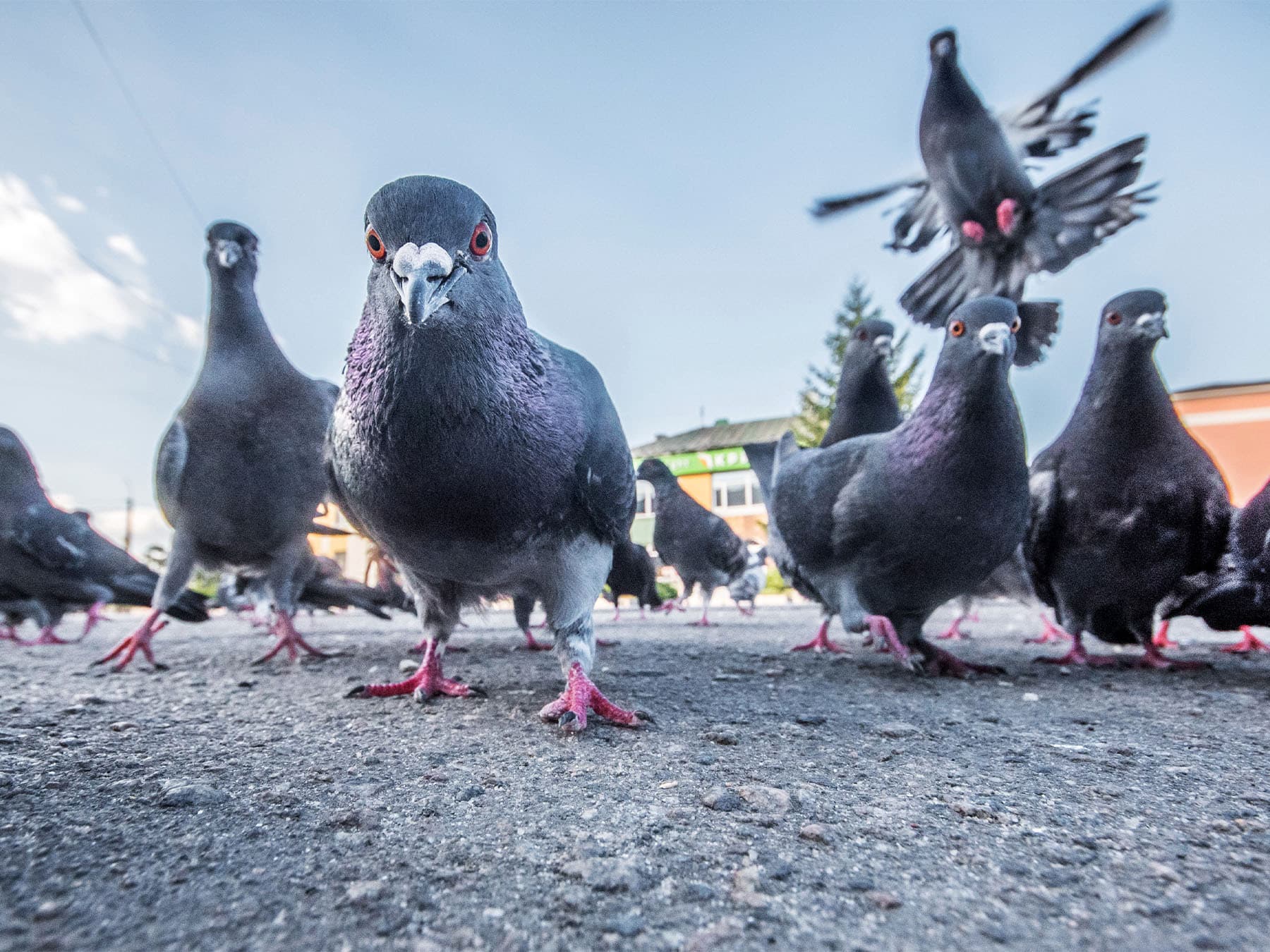
Non-Harmful Deterrents
Reflective Objects
We don’t know exactly why, but birds tend to avoid shiny, reflective materials. It could be that the reflections disorientate and confuse them, but whatever the reason, we can use this knowledge to effectively deter Pigeons.
From old CDs and pocket mirrors to purpose-made holographic tapes, reflective materials are a go-to deterrent for many problem bird species. The key is to hang the material (perhaps from thread or monofilament) near the problem area to allow it to move in the wind and throw light.
Some clever bird-deterring devices that rotate using the wind or an electric or solar power source are also available on the market. These products are attached securely in problem areas like rooftops to keep Pigeons at bay.
Bird Netting
Depending on your situation, it may be possible to completely exclude Pigeons from the area you’re trying to protect with simple bird netting.
Bird netting is a highly effective and humane method of deterring Pigeons from semi-enclosed areas like balconies. A mesh size of approximately 2 inches or 50mm provides an excellent barrier against these birds without blocking light or airflow.
The netting should be stretched taught and secured around the entire perimeter for neatness and to prevent any clever birds from sneaking through.
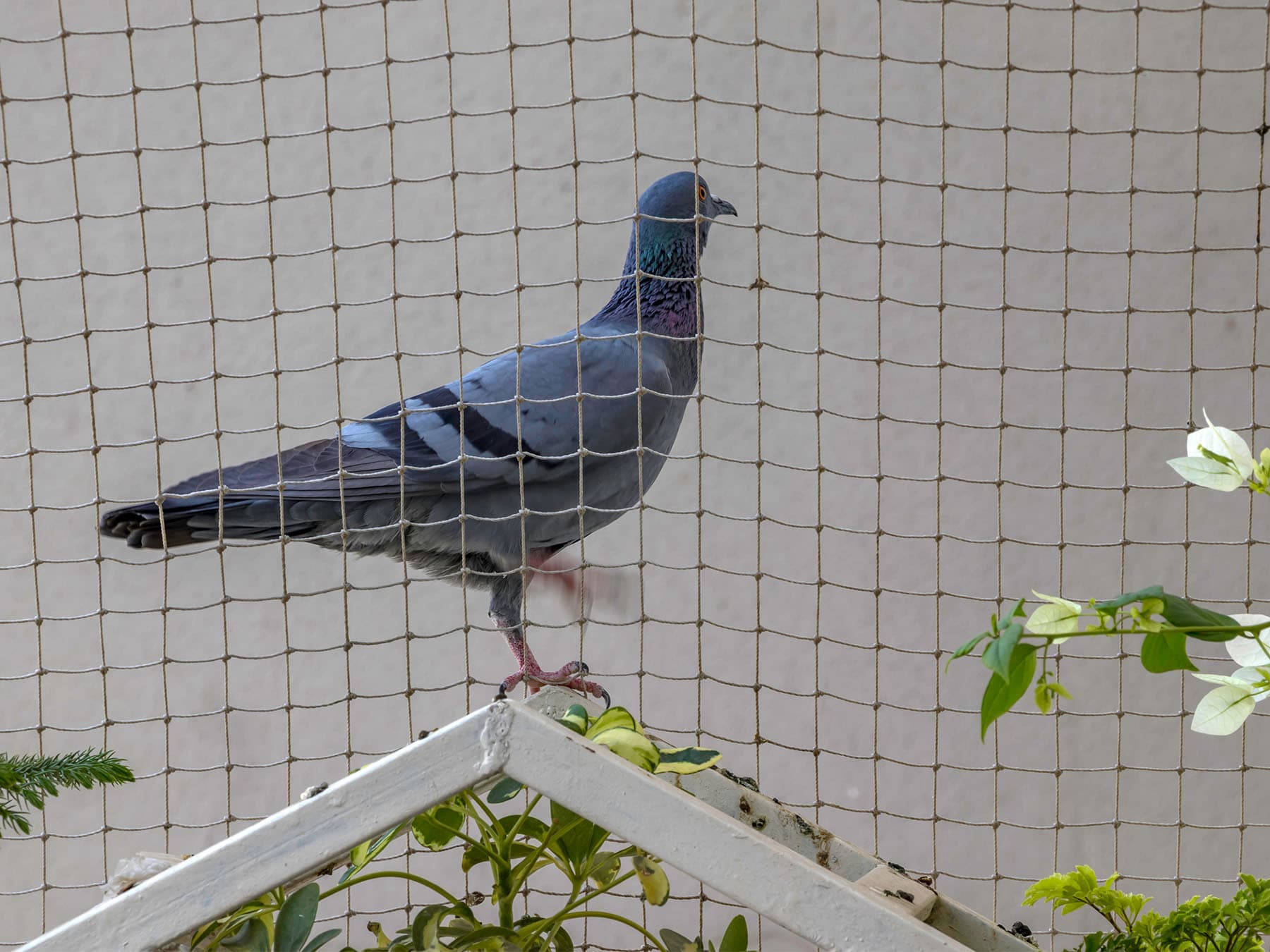
Protective Spikes
Pigeons perching along a windowsill, balcony railing, or above a doorway can become a major headache. Fortunately, there is a clever solution that will encourage these birds to roost or rest elsewhere.
Bird spikes or Pigeon spikes might look harmful, but Pigeons know better than to land on such an uncomfortable surface. These spikes are available in steel or plastic strips which can be secured along the problem area.
Natural Repellents
Many sources suggest using natural scents like peppermint, cinnamon, chili, and citronella oil to deter problem birds around the home. Their effectiveness varies, and depending on the location, you may also have to get used to the smell. This relatively cheap and easy method is worth a shot, but unlikely to provide an effective solution to more serious Pigeon problems.
Modify Feeding Habits
Pigeons are attracted to roosting and nesting areas, but they are also attracted to locations with a regular food supply. Of course, feeding the birds you’re trying to deter is a bad idea. But is it possible to feed other birds without encouraging Pigeons?
Pigeons typically feed on the ground, although they’ll also eat from bird tables or platform feeders. Use a hanging tube feeder to feed smaller songbirds while deterring Pigeons. A hanging seed tray beneath your feeder will catch falling food, so Pigeons can’t simply forage on the ground below.
You can also attract other birds by providing nectar, suet, mealworms, and other foods that Pigeons don’t like.
Got a photo of a bird you can't identify?
Upload a photo and find out what it is in seconds — no account needed
Identify a Bird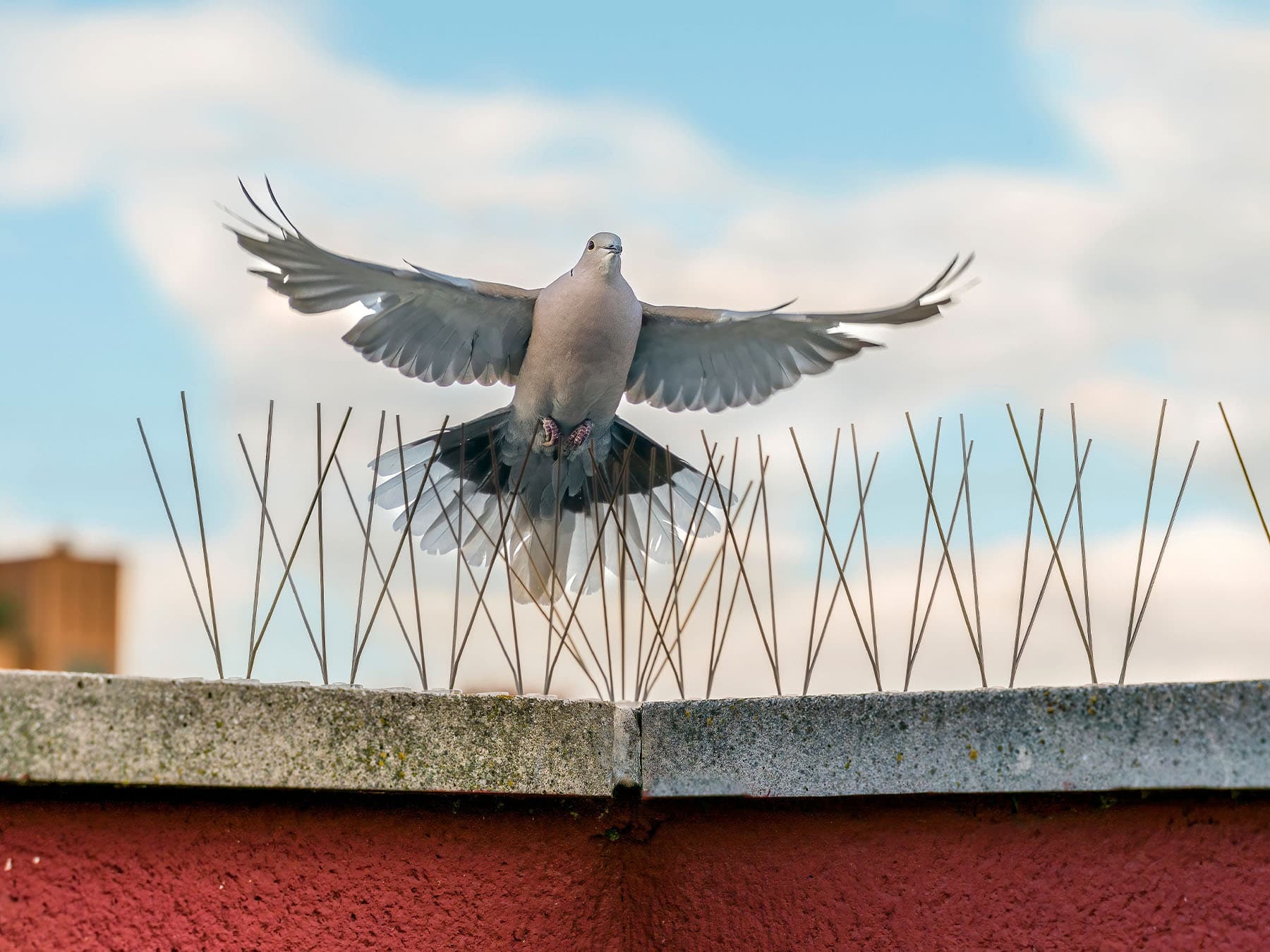
Encouraging Natural Predators
Urban areas may be home to fewer predators than wild habitats, but they still support some of nature’s great Pigeon hunters. The Peregrine Falcon is one bird that is increasingly at home among multistory buildings in towns and cities in many parts of the world.
The urban habitat is a novel ecosystem, with various species jostling to make a living in a pretty bleak environment. Encouraging and conserving native birds of prey and other potential Pigeon predators could be an excellent biological solution to a biological problem.
Regular Maintenance and Nest Management
It may be a little labor-intensive, but simply removing Pigeon nests can effectively deter these birds. A regular presence in the area, including cleaning and maintenance, will also discourage birds that prefer a quiet and secluded space to raise their young.
New Pigeon nests are flimsy structures that are not easy to move and keep intact, so this is only a good option if you catch the problem early. Of course, you don’t want to disturb a pair of birds that already has eggs or chicks, especially if the species is native and protected in your area.
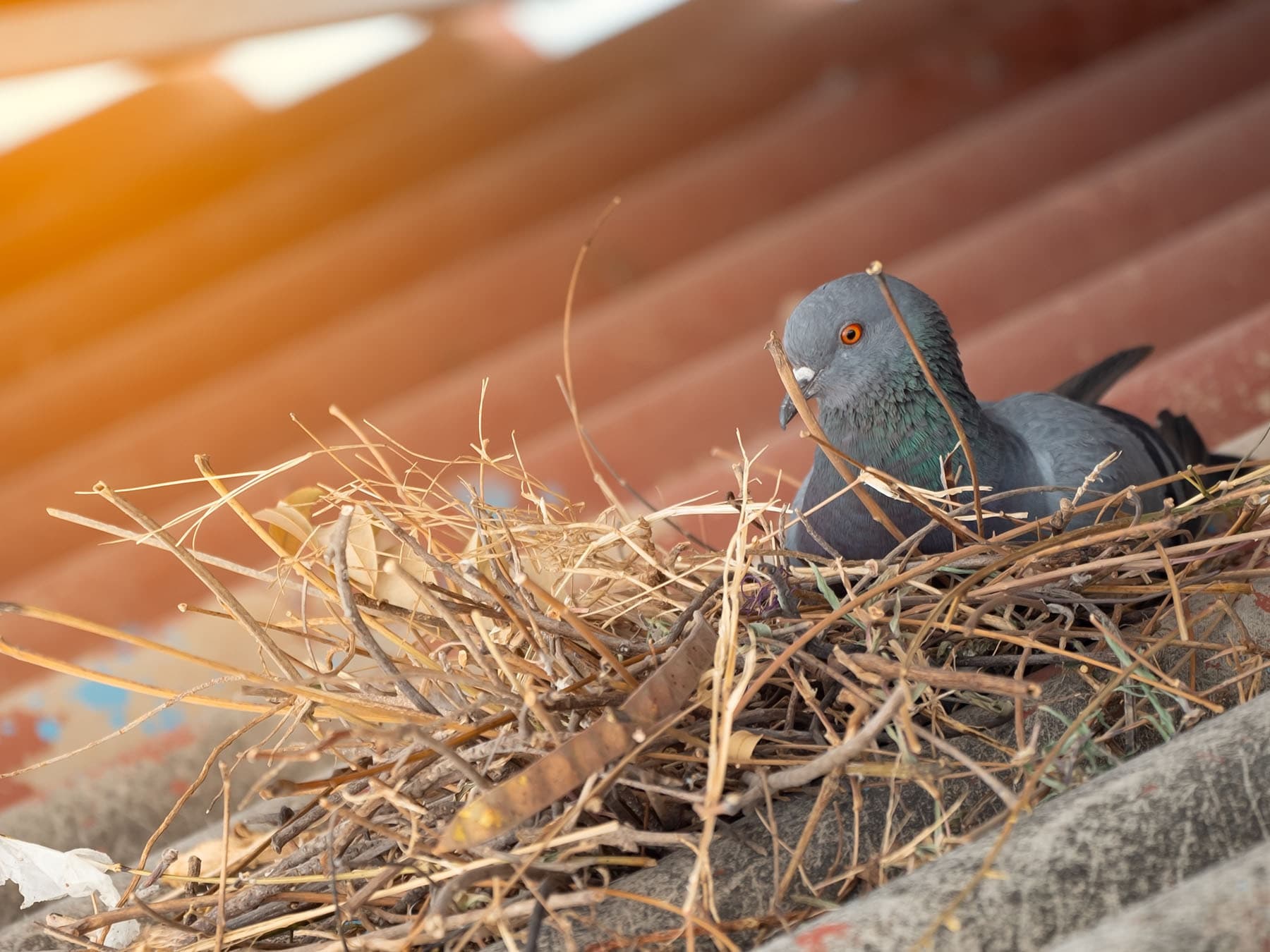
Anti-Roosting Products and Their Safe Use
The physical deterrents discussed above (netting, spikes, etc.) are very effective for preventing Pigeons from roosting on your property if you can safely install them in the problem area. However, there is another type of product you may want to consider.
Sticky anti-roosting gels and optical gels are available on the market. These products are said to deter Pigeons by creating an unpleasant landing area, and some also reflect UV light. They may also contain scents like peppermint and chemicals that produce a mild burning sensation on the bird’s feet.
Depending on the situation, these products could be effective, although responsible use is critical here. Applying gels incorrectly or using too much can entangle birds or leave them covered and flightless, potentially ending their life in a very inhumane way. Ensure that any repellent product you use is legal in your area, and follow the usage instructions carefully.
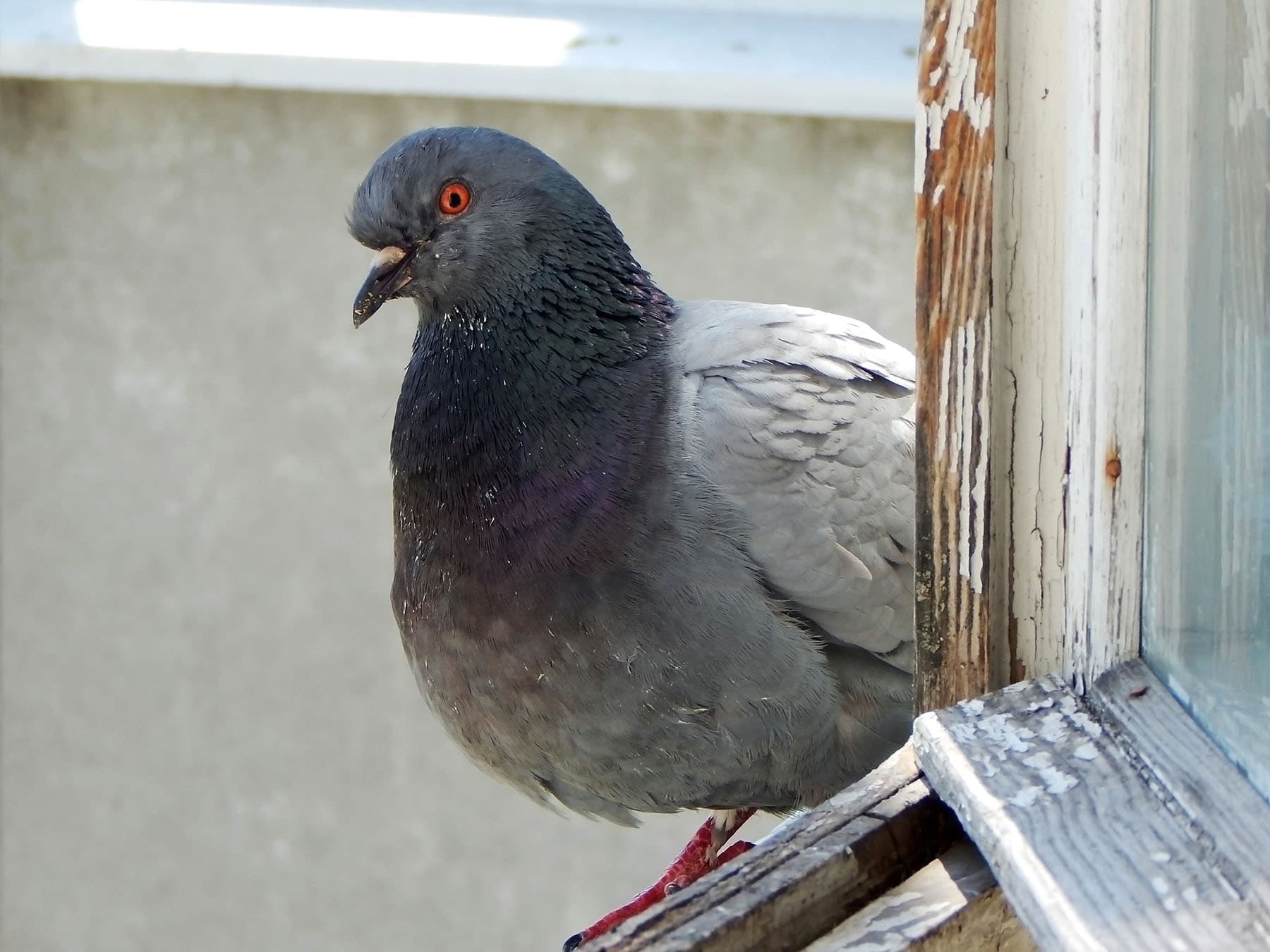
Community Cooperation
Reducing the damage caused by Feral Pigeons can be much more effective when communities pull together to tackle the problem. Our towns and cities provide multiple nesting and roosting sites, which means deterrents used in isolation are unlikely to solve the greater problem.
Using humane Pigeon deterrents and barriers on all parts of buildings and even considering their nesting and roosting habits in the design phase of buildings is a better solution. Physically excluding Pigeons is only one part of the solution, and access to food also needs to be considered.
Open the conversation with well-intentioned individuals who feed Pigeons in problem areas. Perhaps encouraging and feeding other native bird species would be equally fulfilling and entertaining. Food retailers and waste management companies should also be aware that they may be inadvertently providing a food source for Pigeons.
Reducing the food available to Pigeons may seem cruel, but it will not starve them immediately if implemented responsibly. The ultimate goal should be to reduce their breeding success in the area.
The Importance of Coexistence
Before trying to get rid of Pigeons, it’s worth taking a minute to assess how bad your Pigeon problem really is. Sure, if you have a huge flock of Pigeons roosting on your balcony, you’d probably want them gone ASAP, but you might just want to live and let live in minor cases. We’ve already excluded so much wildlife from our urban areas that managing a little Pigeon mess could be the most harmonious option.
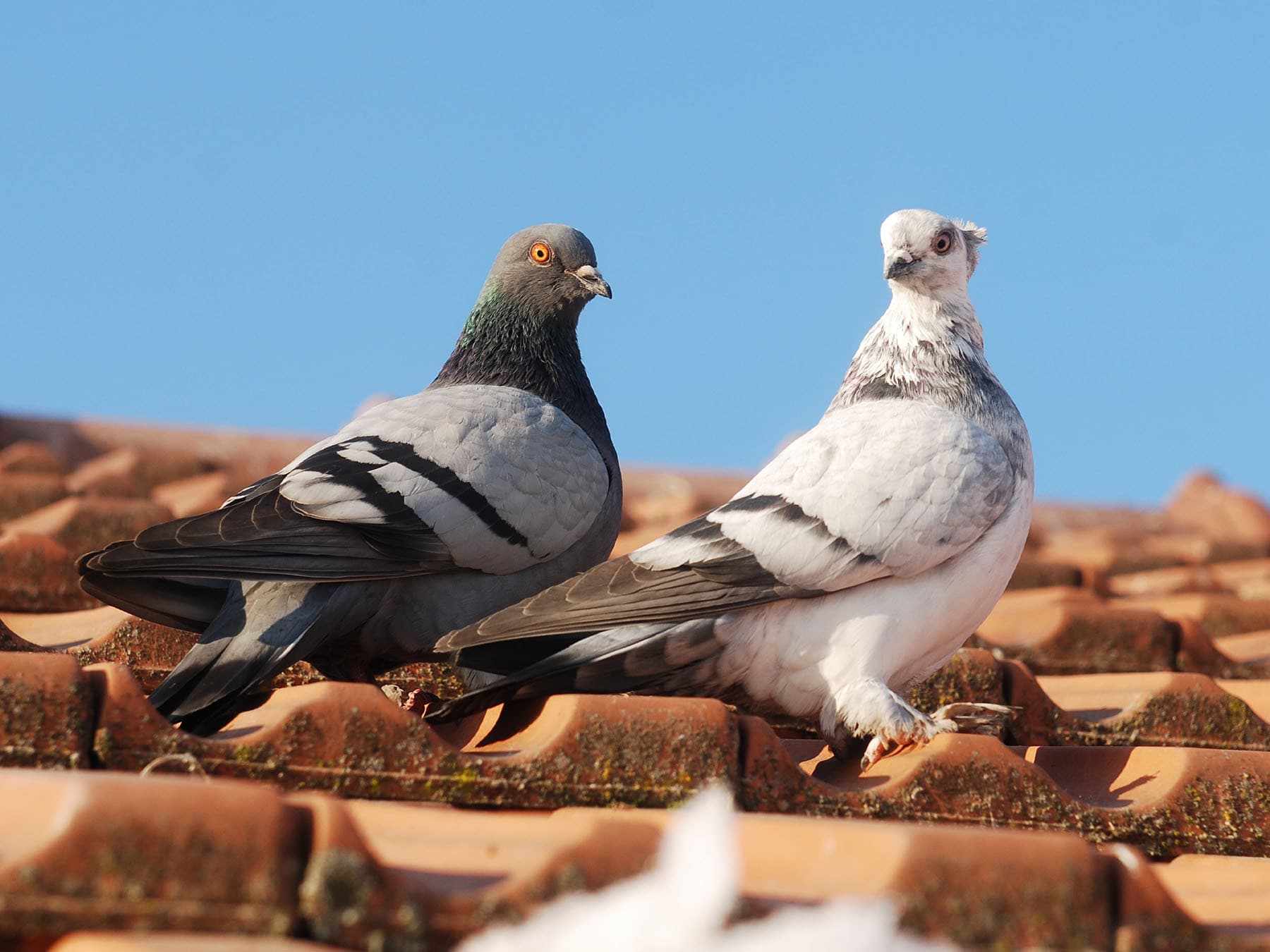
Is It Legal to Get Rid of Pigeons?
Legal protection for Pigeons varies depending on where you live and which species of Pigeon you are trying to deter. For example, the Rock Dove/ Feral Pigeon is protected by the Wildlife and Countryside Act in the United Kingdom but not federally protected by the Migratory Bird Treaty Act in the United States.
There may also be laws governing the use of deterrents in your country, state, or even city, so it’s always important to consult local authorities before trying to remove or deter Pigeons.
When to Seek Professional Help
Let’s face it, we don’t always have the time, tools, or know-how to tackle problems around the home, and sometimes it’s best just to call in a professional. Working on balconies and rooftops is dangerous work both for yourself and the people below! If you do hire some help, ask them about the methods they use and make sure they stick to legal and humane Pigeon deterrents.
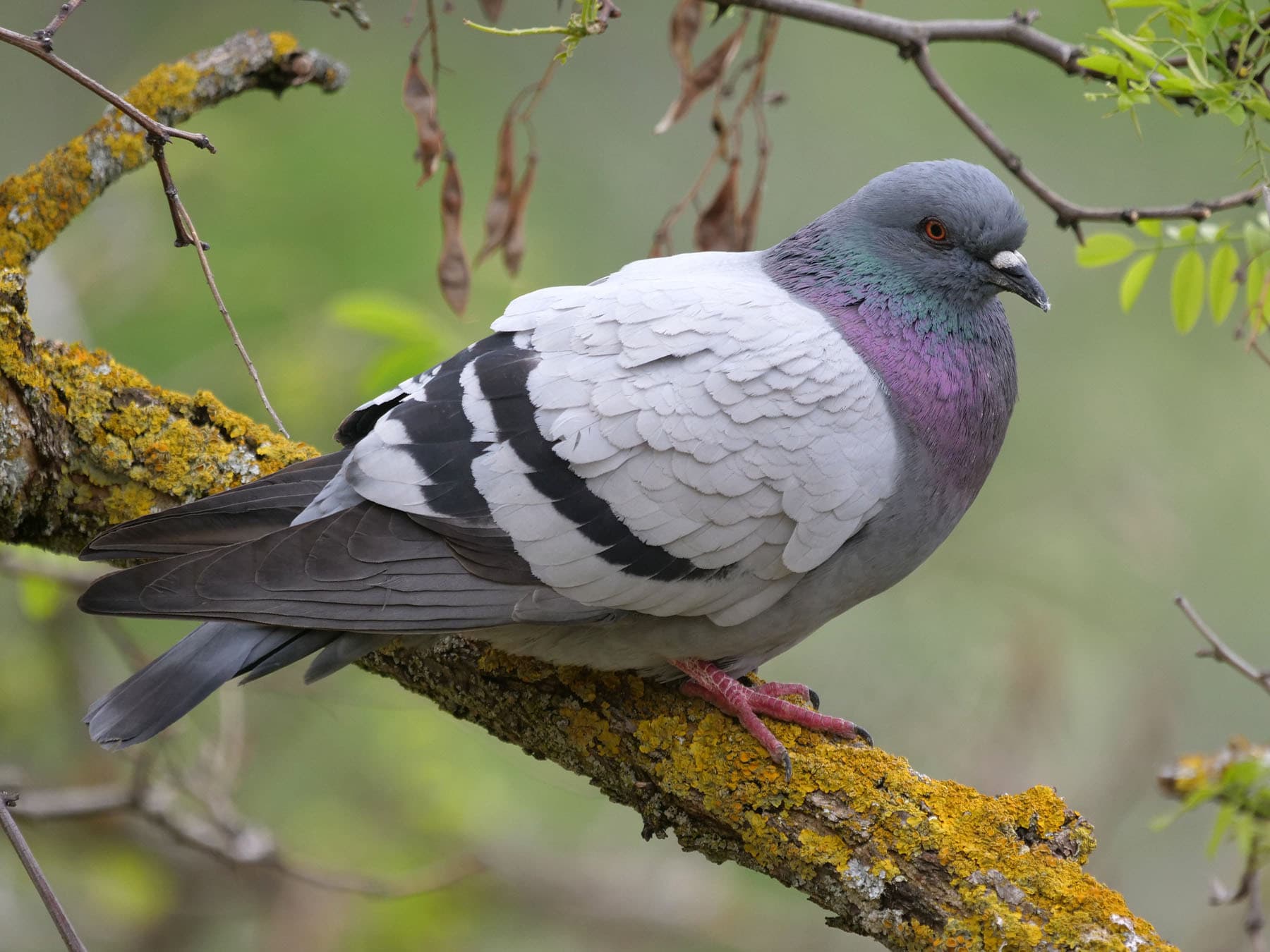
FAQs
Are bird repellents dangerous for birds?
Bird repellents are generally designed to deter birds without harming them. However, it is possible to hurt or trap Pigeons by misusing deterrents. Excessive use of sticky gels or mistakenly sealing birds into an area with a barrier like bird netting are obvious risks for birds.
Can you deter Pigeons only?
Unfortunately, bird spikes and netting will deter all similar-sized and larger birds from accessing an area. However, Pigeons are often the primary species in problem areas like balconies. Smaller songbirds can pass through larger mesh sizes, and it is possible to feed small birds only with a caged feeder or a combination of a tube feeder and a seed catcher.
Do plastic Owls deter Pigeons?
Plastic Owls get mixed reviews when it comes to deterring Pigeons and other birds. They may be effective at first, but Pigeons often figure them out soon enough and will begin to ignore them.
Summary
At the end of the day, physically preventing Pigeons from landing in the problem areas around your home and building may be the most effective long-term method of keeping them away. However, cheap and simple solutions like hanging reflective tape are worth starting out with.
Dealing with messy Pigeons can be annoying or even distressing, so we hope the tips in this guide provide an effective solution to your problem! Above all, please have some compassion for the birds by using humane methods and always remain within the law.
Identify Any Bird Instantly
- Upload a photo from your phone or camera
- Get an instant AI identification
- Ask follow-up questions about the bird
Monthly Birds in Your Area
- Personalised for your location
- Seasonal tips and garden advice
- Updated every month with new species
